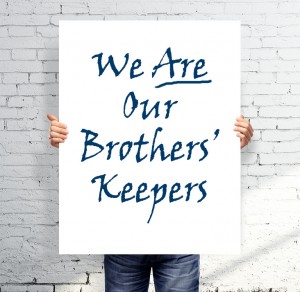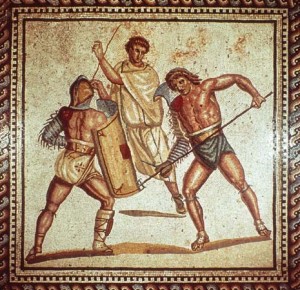 In a few days my new book will be published: Vanishing Grace: What Ever Happened to the Good News? I wrote it after reading surveys that document a dramatic shift in our culture, what I call the “grace gap.” Ordinary Americans, especially those who have no religious commitment, view Christians much less favorably now than they did even twenty years ago. Outsiders to the faith see Christians as judgmental, self-righteous, right-wing, and anti — anti-gay, anti-science, anti-sex — the usual stereotypes.
In a few days my new book will be published: Vanishing Grace: What Ever Happened to the Good News? I wrote it after reading surveys that document a dramatic shift in our culture, what I call the “grace gap.” Ordinary Americans, especially those who have no religious commitment, view Christians much less favorably now than they did even twenty years ago. Outsiders to the faith see Christians as judgmental, self-righteous, right-wing, and anti — anti-gay, anti-science, anti-sex — the usual stereotypes.
I’ll leave such analysis to the pollsters and sociologists. I’m more interested in how we in the church might be contributing to a crisis of grace. To me, much of the problem stems from the uncomfortable reality that American culture has moved away from having a solid Christian consensus at its core. A strong majority still believe in God, and a strong minority attend church on a semi-regular basis, but the culture has grown increasingly secular compared to the recent past.
How do we respond? Recently I heard the writer Amy Sherman describe three possible approaches: fortification, accommodation, and domination.
- Fortification: some Christians hunker down in a defensive posture, insulating themselves against the broader culture and creating a bubble around the subculture.
- Accommodation: some follow the script of the world, watering down the message so that it no longer offends.
- Domination: some fight to “get our country back!” by electing Christian politicians and working to pass laws that reflect the moral values they cherish.
Each of these approaches involves pitfalls, as Amy Sherman pointed out. Fortification? Jesus sent out his followers as “sheep among wolves,” not as sheep locked safely in the barn. Accommodation? Jesus never watered down the gospel message and its implications for how we should live. Domination? One of the main reasons for a decline of faith in Europe traces back to the days when church and state worked together to dominate culture; though a coercive approach may work for a while, inevitably it produces a backlash.
 As our culture grows more polarized, I look for models of how to bring grace back to a society in dire need of it. American Christians have been “spoiled,” in a way, with our religious heritage. Historically, we’re the outlier. More often the church around the world confronts a state of affairs closer to what the early Christians faced in Rome—or what Christians in China and the Middle East face today. With our strong infrastructure of missions, education, and service organizations, I hope we in the U.S. church can demonstrate to the rest of the world a new model, of pioneer settlements showing the world a different way to live, a bright contrast to the violent, competitive, self-indulgent culture around us.
As our culture grows more polarized, I look for models of how to bring grace back to a society in dire need of it. American Christians have been “spoiled,” in a way, with our religious heritage. Historically, we’re the outlier. More often the church around the world confronts a state of affairs closer to what the early Christians faced in Rome—or what Christians in China and the Middle East face today. With our strong infrastructure of missions, education, and service organizations, I hope we in the U.S. church can demonstrate to the rest of the world a new model, of pioneer settlements showing the world a different way to live, a bright contrast to the violent, competitive, self-indulgent culture around us.
 For a model I look back to the early Christians, who were seeking to live out their faith in a culture far more hostile and arguably more immoral than our own. We think NFL football is violent; Romans watched gladiatorial murder for sport. Abortion is bad enough; in the cruelest form of birth control, the Romans abandoned their full-term infants to wild animals. Sexual immorality? Roman brothels were legal and common, and sophisticated Romans often practiced pederasty with young slaves.
For a model I look back to the early Christians, who were seeking to live out their faith in a culture far more hostile and arguably more immoral than our own. We think NFL football is violent; Romans watched gladiatorial murder for sport. Abortion is bad enough; in the cruelest form of birth control, the Romans abandoned their full-term infants to wild animals. Sexual immorality? Roman brothels were legal and common, and sophisticated Romans often practiced pederasty with young slaves.
So how did the early Christians respond? As a tiny minority, they showed a watching world a different way to be human. When Romans abandoned their unwanted babies, Christians organized platoons of wet nurses to keep them alive for adoption by church families. Risking their own lives, they stayed behind to nurse plague victims whose families had fled. (Medical missionaries are doing the same thing today, in African countries affected by the Ebola virus.) They lived out a new standard of sexual purity. After a while, Romans were impressed by the differences: the Christians’ beliefs and practices truly seemed like Good News.
I’m writing this from South Korea, a country with a strong minority (30 percent) of Christians who have shown me creative examples of how to dispense grace in a secular culture. Just yesterday I toured a beautiful new school built by a church to educate refugee children from North Korea. And today I met a remarkable pastor named Lee Jong-rak.
Pastor Lee cares for a son born with crippling cerebral palsy, and it disturbed him greatly to learn that hundreds of babies born with disabilities—deafness, blindness, cerebral palsy, Down syndrome—are abandoned on the streets of Seoul every year. Unmarried women who get pregnant face a strong stigma in a shame-based culture, and many of them abandon their perfectly healthy babies as well.
 In response to this social problem, Pastor Lee constructed an ingenious “baby box” in the wall of his home. From the outside it resembles an after-hours bank deposit box, though decorated with children’s artwork. A parent who wishes to remain anonymous can open the baby box and deposit the unwanted infant in a warm, blanketed compartment fitted with a motion sensor and an alarm. Thus alerted, Pastor Lee or a volunteer comes to collect the baby and bring it into their bustling orphanage.
In response to this social problem, Pastor Lee constructed an ingenious “baby box” in the wall of his home. From the outside it resembles an after-hours bank deposit box, though decorated with children’s artwork. A parent who wishes to remain anonymous can open the baby box and deposit the unwanted infant in a warm, blanketed compartment fitted with a motion sensor and an alarm. Thus alerted, Pastor Lee or a volunteer comes to collect the baby and bring it into their bustling orphanage.
In the last five years Pastor Lee has saved 561 babies who otherwise would have died. More than a hundred of the newborns still had umbilical cords attached. Along the way, Pastor Lee and his wife adopted 19 of the babies, including several with profound disabilities.
 Pastor Lee’s approach of creative grace mirrors what happened in the first century, when early believers in the Roman Empire took Jesus’ agenda to heart. The Christians organized relief projects for the poor and ransomed their friends from barbarian captors. Some voluntarily freed their own slaves. As I mentioned, they adopted unwanted babies and nursed the sick, including their unbelieving neighbors.
Pastor Lee’s approach of creative grace mirrors what happened in the first century, when early believers in the Roman Empire took Jesus’ agenda to heart. The Christians organized relief projects for the poor and ransomed their friends from barbarian captors. Some voluntarily freed their own slaves. As I mentioned, they adopted unwanted babies and nursed the sick, including their unbelieving neighbors.

including this blind girl abandoned by her mother.
In the waning days of the empire, the watching world sat up and paid attention. People flocked to the churches, which stood out as caring communities. A fourth-century Roman emperor known as Julian the Apostate complained bitterly about Christians of his time: “These impious Galileans not only feed their own poor, but ours also… Whilst the pagan priests neglect the poor, the hated Galileans devote themselves to works of charity.” His campaign against the Christians failed, and the gospel continued to spread while Roman power ebbed.
Some Christians view with alarm a modern culture that is growing increasingly secular, and perhaps even hostile. Actually, we’re simply returning to the kind of situation that confronted the early disciples of Jesus. Like them, we’ll need to find ever more creative, and effective, ways of dispensing God’s grace.



Leave a Comment